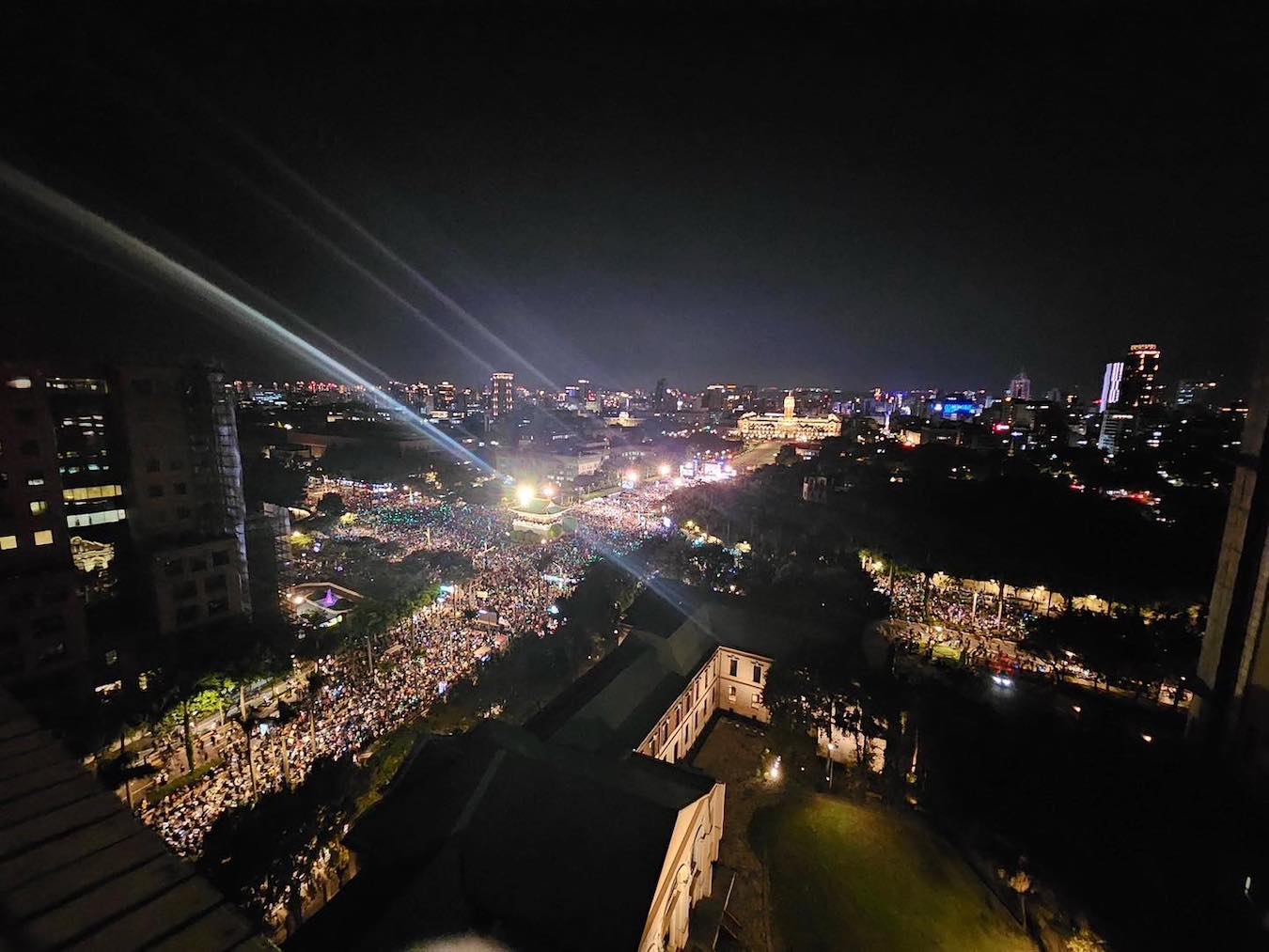by Brian Hioe
語言:
English
Photo Credit: Lai Ching-te/Facebook
THE 2024 TAIWANESE presidential election resulted in a victory for DPP presidential candidate Lai Ching-te today. Lai had a clear lead from the start, but the overall dynamics of the election reflect that the DPP could have faced a defeat had the pan-Blue camp managed to have a joint ticket.
At press time, Lai had over 5.2 million votes. By contrast, KMT presidential candidate Hou You-yi had 4.4 million votes, while 3.5 million votes went to TPP presidential candidate Ko Wen-je.
The final rallies of the election season yesterday night in greater Taipei reflected the strong performance by the TPP, with the TPP having a larger rally than either the KMT or DPP. The TPP claimed 350,000 in attendance for their demonstration, while the DPP and KMT both claimed 250,000. The initial hour or so of polling suggested that Ko could actually defeat Hou, even if Lai had a clear lead over all of the pan-Blue candidates.
What was originally anticipated to be an election campaign that would see low voter turnout turned out to be quite heated. Yesterday, the Taiwan Railways Corporation reported what was anticipated to be the largest ticket sales for a single day, with 310,000 tickets sold by 1:30 PM and it expected that 760,000 would be sold by the end of the day. It is still somewhat unclear as to what led to the rapid shift in political mood.
By 8 PM, Ko and Hou declared their losses, while Lai held a victory speech. Lai framed his speech as Taiwan illustrating the affirmation of democratic values, in Taiwan standing alongside other democratic countries against authoritarianism. Lai emphasized that social progress would continue, thanking outgoing President Tsai for her leadership. Lai stressed that he would seek to incorporate views from other political parties and bring in talent from other political partisans, stressing a non-partisan approach to governance.
To this extent, Lai stated that he would seek to maintain the cross-strait status quo, while defending Taiwan against Chinese threats. Lai did not rule out cooperation with the Chinese government under conditions of dignity. Lai strongly emphasized his commitment to maintaining the cross-strait status quo.
The DPP did not hold onto its majority in the legislature, but it performed evenly with the KMT. Out of the 73 district legislative seats with known results at press time, 36 seats went to the DPP while 35 went to the KMT. 36% of the party vote went to the DPP while 34% went to the KMT and 22% to the TPP.
 The TPP rally in New Taipei yesterday night. Photo credit: Ko Wen-je/Facebook
The TPP rally in New Taipei yesterday night. Photo credit: Ko Wen-je/Facebook
As such, with a near-dead-even split between the DPP and KMT, as many expected, the TPP could potentially control the balance of power in the legislature. At the same time, it proves interesting that the TPP did not perform evenly with the KMT in the manner of the presidential race. Clearly, support for Ko does not translate one-to-one to support for the TPP.
What occurs next is unclear, particularly if the KMT is able to form a coalition with the TPP or engages in scorched earth tactics against the DPP.
For its part, in Ko’s comments and in other messaging by the TPP, the TPP emphasized that the results showed that Taiwanese society wished to progress beyond traditional divisions between the pan-Blue and pan-Green camp. The TPP stated that it would continue to work for that future.
None of the three parties will hold the majority in the legislature and the TPP and KMT are expected to try and nominate Han Kuo-yu for speaker of the legislature.
Outside of the TPP, small parties were wiped out in the vote. The NPP, Taiwan Statebuilding Party, Obasan Alliance, and Green Party did not clear the 3% threshold for small supporters to gain funding. The Obasan Alliance and Green Party, in fact, did better than the Taiwan Statebuilding Party, suggesting that voters may hope for third parties that emphasize more than just independence versus unification issues.
Many progressive youth candidates that emerged in the wake of the Sunflower Movement were defeated or ousted from office. This included Lai Pin-yu, Tseng Po-yu, Wu Cheng, Tseng Wen-hsueh, and Miao Poya. Of the members of the DPP grouping known as “The Generation”, only Wu Pei-yi in Zhongzheng-Wanhua was successful in grasping victory.
What comes next for Taiwanese politics is largely unknown then. Much will depend on the dynamic between the legislature and presidency, as well as what role the TPP plays.
Yet the victory of the DPP in not only the party vote but also the presidential election goes to show that the Taiwanese public continues to support the DPP, even if it is clear that it does not hold an unchallenged mandate. It may be that the DPP managed to retain power because it is still viewed as the party that defends Taiwanese sovereignty, with backlash against its inability to resolve socioeconomic inequality in Taiwan still not managing to oust it from the presidency. But the DPP will need to do much if it hopes to maintain power going forward and it is possible that it will face significant challenges from the pan-Blue camp in the future.

